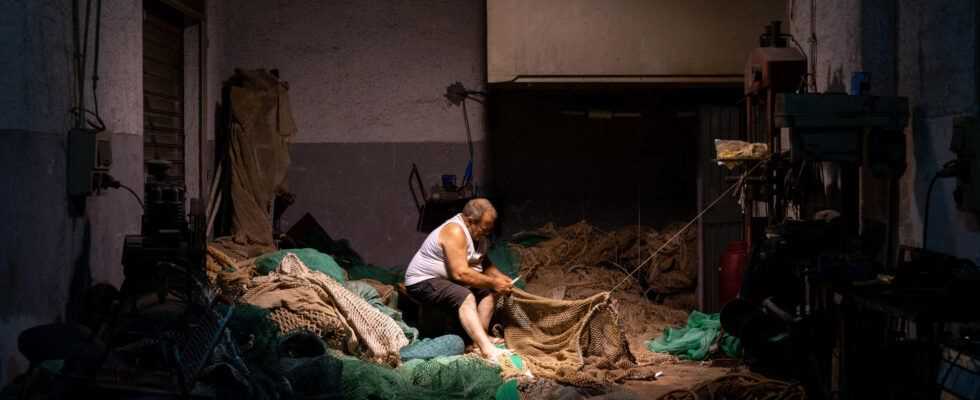ReportingThe Sicilian boats which fish in the fish-bearing waters of Tripolitania and Cyrenaica often have a problem with the Libyans. But since Europe tasked Tripoli in 2018 with preventing the disembarkation of migrants on its coasts, the situation is explosive.
Once arrived on the quay, and after the usual presentations, the fisherman begins to deliver what he has on his heart. As its flow accelerates, the pure Italian of the first moments is mixed with Sicilian terms, at first sporadically, then in whole sentences. The morning is not very late, but the port of Mazara del Vallo, in the south-west of Sicily, is already crushed by the heat. Facing the blinding sun, reflecting off a limpid sea, he barely squinted – force of habit. His features are drawn, and his eyes red from the sleepless nights; he nervously connects cigarette after cigarette.
Giuseppe Giacalone is 56 years old, 43 of them spent offshore, and he no longer wants to go to sea. On May 6, in international waters off the African coast, theAliseo, he was in command, was targeted by Libyan forces. He himself was injured in the arm and head. He has seen death too closely to think again of tempting the devil. “My wife tells me that I cry at night, in my sleep”, he confides, at the turn of a sentence, exhausted by the memory of this scene of war.
It all started on May 3, off the coast of Cyrenaica (eastern Libya). “ We usually do outings of about fifty days. There, we had been outside for two weeks, seven or eight ships, under the surveillance of an Italian navy unit, when a speedboat appeared full of Libyan soldiers. They got on one of the fleet’s boats and threatened the crew with machine guns and even a rocket launcher ”, remembers the fisherman. The Italian navy intervened and helped resolve the situation, then the small fishing fleet dispersed, most of the ships heading for Greek and Turkish waters, while three others, including theAliseo, head west, between Misrata and the Gulf of Sirte.
Giuseppe Giacalone and his seven crew (three Italians and four Tunisians) halt, then cast their nets, on May 6, around 5 am, a little less than 50 miles from the coast. At midday, a Libyan speedboat heads straight for theAliseo and open fire. “Later, the Libyans said it was warning rounds, but they were shooting at ground level and they were making holes in the windows… I yelled at my crew to take cover in the cold room, and I went north. There were three of them pulling from the launch, one from the bow, one from the deck and one in the middle, and I continued like that, with the blood flowing on my head and on my arm, for an hour and a half ”, he explains in a blank voice.
You have 86.57% of this article to read. The rest is for subscribers only.
